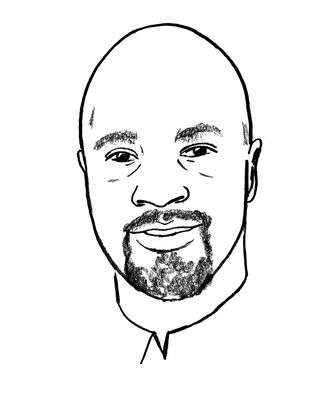
In an entertainment landscape saturated with spandex-clad crusaders, Marvel and Netflix have managed to create something unique: superhero stories for people who don’t like superhero stories. The latest Marvel-Netflix partnership is Marvel’s Luke Cage, which follows its bulletproof protagonist, played by Mike Colter (ex The Good Wife), as he tackles corruption and intrigue in a gentrifying Harlem.
Mike, your character has previously appeared in Jessica Jones, and the series is set in the same universe as other Marvel properties. How much prior comic-book knowledge do people need in order to understand the show?
Luke Cage has its own story. We do acknowledge the existence of Jessica, but we don’t rely on that to get us into the story of Luke’s journey. We hope people go back and watch Jessica, for sure. But it’s not a requirement.
Describe Luke Cage.
He’s a ladies’ man. He’s charming. He has a swagger about him. But he’s also a little corny. He has a strange sense of humor. He doesn’t take himself too seriously. But he ponders life in a big-picture sense. He made some mistakes before, but he’s trying to change those things now. So he’s a work in progress.
How do you feel about the fact you’re now going to be associated with this character and with this brand?
I knew that what I could be getting myself into would change my life. It’s weird when the number of people that recognize you starts to increase exponentially.
Were you nervous about headlining a show?
That didn’t bother me. I just thought, Hey, I’ll just come to work and shoot more scenes. When I went to the show and showed up on set, the first thing I told a lot of the other actors who were there [was], “Look, when I’m on set, it’s not just my show. Pretend that it’s your show. Go about your business as if this is your show.” I wanted their best work.
I’m only as good as they are.
The show has an almost entirely black cast and deals openly with issues facing people of color. How important is race to the show?
It’s important in the sense that we could, hopefully, create more opportunities of this kind. But race doesn’t have a lot to do with Luke Cage other than the fact that we want to show people that there are positive images to be had from black men, especially ones in hoodies. We’re not trying to say, “Every time you turn on this show, we’re gonna teach you a lesson.” There are lessons to be learned, but I don’t know that I’m the one to say which ones they are.
Luke Cage streams on Netflix September 30.
*This article appears in the September 5, 2016, issue of New York Magazine.

